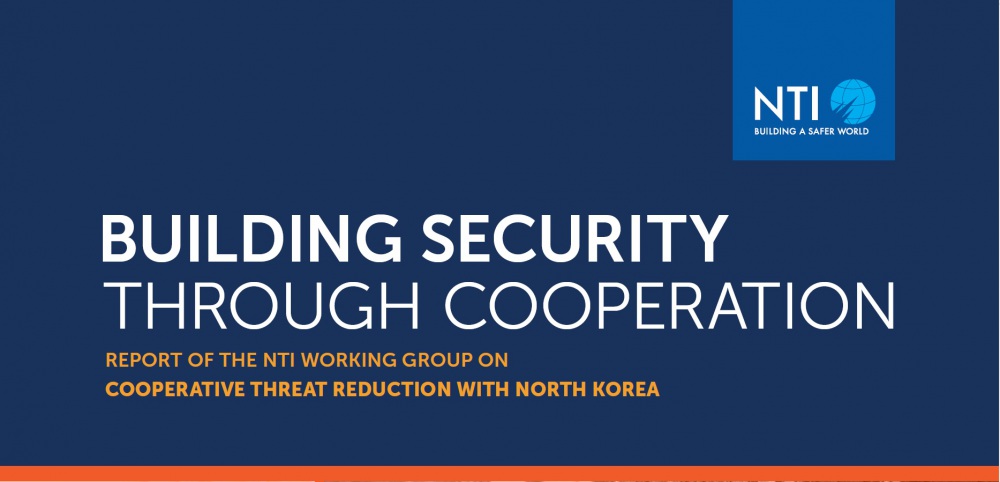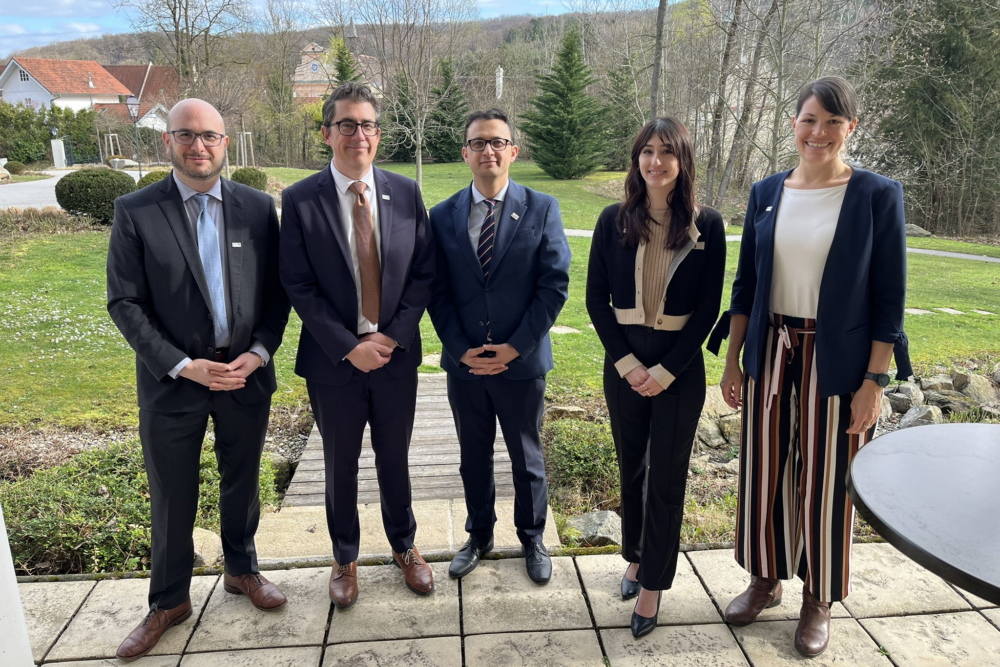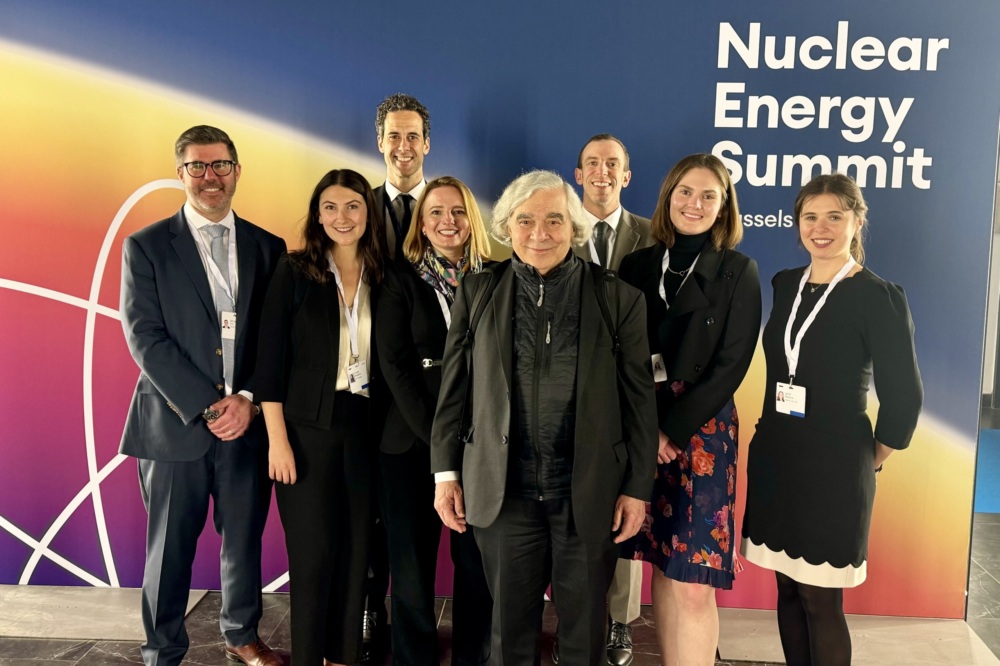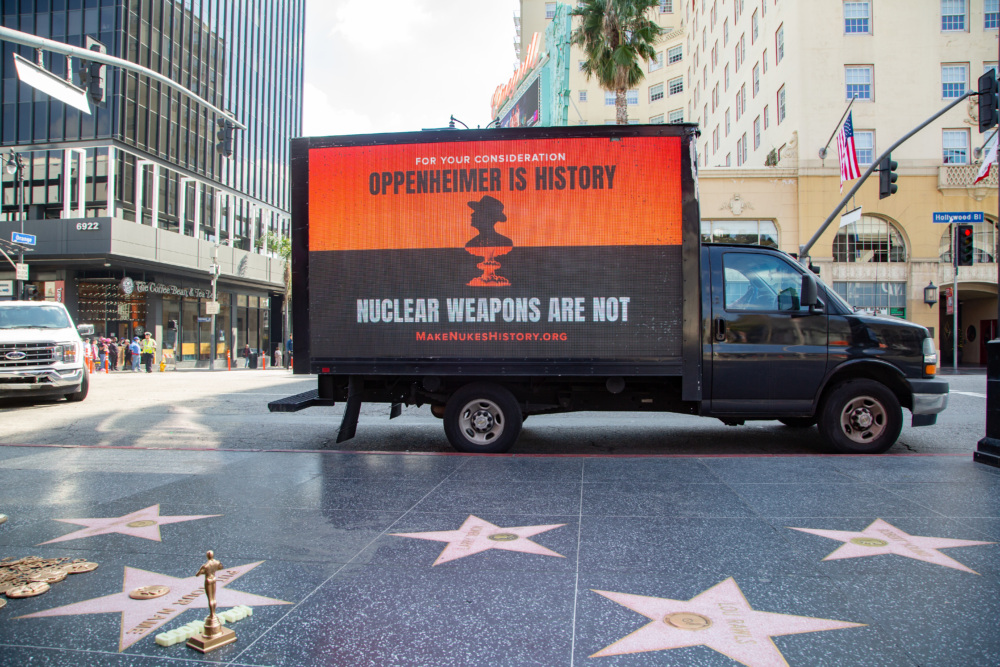
Sam Nunn
Co-Founder and Co-Chair, NTI
WASHINGTON, D.C.—Negotiations leading to a comprehensive,
verifiable, and enduring denuclearization of North Korea should include an
offer to Pyongyang of a Cooperative Threat Reduction (CTR) program, according
to a report released today by the Nuclear Threat Initiative (NTI). Such a
program would facilitate dismantlement of North Korea’s nuclear and other WMD
programs and incentivize the DPRK by providing technical and economic assistance,
both on denuclearization and on redirecting military activities toward civilian
economic development.
Building
Security Through Cooperation: Report of the NTI Working Group on Cooperative
Threat Reduction with North Korea offers lessons from the
CTR approach taken with former Soviet states following the dissolution of the
Soviet Union. It provides recommendations for how a similar program could offer
technical and financial assistance to help North Korea implement specific
commitments toward denuclearization and engage the scientists and engineers who
now make weapons of mass destruction in peaceful scientific and technical work.
Such a program would be enhanced by the involvement of key regional
parties—China, South Korea, Japan, and Russia—and other countries to aid North
Korea’s longer-term economic development and integration into the international
community.
This concept for North Korea is inspired by the successful
program championed by NTI Co-Chair Sam Nunn and the late Richard Lugar when
they were serving together in the U.S. Senate in the early 1990s. The
Nunn-Lugar CTR program ultimately resulted in the destruction and dismantlement
of thousands of nuclear and other weapons of mass destruction from the former
Soviet Union and prevented the proliferation of weapons and know-how to other
countries or terrorists.
In 2018, with the diplomatic opening between President Trump
and North Korean Leader Kim Jong Un, Nunn and Lugar outlined the broad strokes
of such an approach in a Washington Post op-ed. NTI then convened a
working group of experts to explore further how a CTR-like program could be
applied to North Korea, taking into account the significant differences between
the situation with North Korea today and that of the former Soviet Union in
1991.
“North
Korea’s economic future depends on a major transition toward non-military
investment,” said Nunn. “This can only happen through verifiable
denuclearization of the Korean Peninsula. This report provides a menu of
options designed to help bring peace and stability to the most militarized
region on the planet. The key word in this concept is ‘cooperative.’ It must be
done with North Korea—not to North Korea. It must provide benefits to all
parties and it must reduce the grave danger on the Korean Peninsula.”
Among the areas addressed by the report are the elimination of
nuclear weapons and materials, missiles and other weapons of mass destruction,
as well as dismantlement or conversion of production facilities, peaceful
scientific cooperation, environmental remediation and humanitarian and health
assistance. The report’s ideas are designed to advance the security interests
of the United States and South Korea, other regional parties, and North Korea,
as well as North Korea’s economic goals.
In making the recommendations, the working group was
clear-eyed about the challenges. “That the North Korean nuclear program has
resisted 25 years of diplomatic processes designed to address it should keep us
humble as we present these recommendations,” NTI Co-chair and CEO Ernest Moniz said. “But that history
should not deter policymakers from pursuing creative ways forward today.”
Watch the video of the launch event here.
About the Nuclear
Threat Initiative
The
Nuclear Threat Initiative protects lives, the environment,
and our quality of life now and for future generations. Every day, we work to
prevent catastrophic attacks with weapons of mass destruction and
disruption—nuclear, biological, radiological, chemical and cyber.
Sign up for our newsletter to get the latest on nuclear and biological threats.
During the 17th meeting of the Global Dialogue, participants developed plans to ensure successful outcomes at ICONS and leverage that momentum to reinvigorate nuclear security internationally.
NTI advanced key principles from a recent report that outlines pathways for the responsible, sustainable, and effective development of new nuclear projects and industries in embarking countries.
NTI's #MakeNukesHistory campaign breaks through Oscars coverage to remind people that while Oppenheimer is history, nuclear weapons are not.



